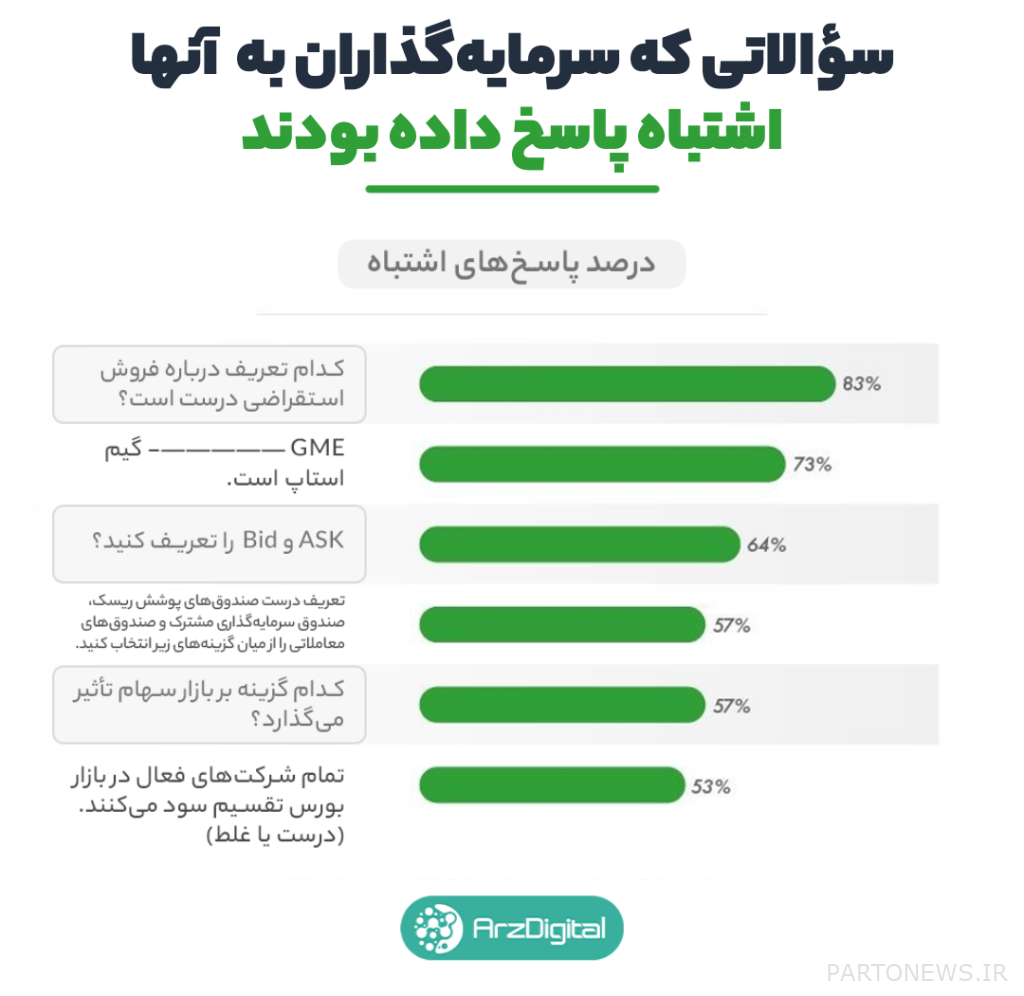New statistics: Basic knowledge of digital currency investors from the stock market is very low

The results of a new survey and statistical study show that investors in the digital currency market have far less information about the stock market than those who only invest in the stock market.
to the Report CryptoSlite After the spread of the corona virus around the world and thanks to new platforms such as Robinhood and Acorn that allow their users to invest in the financial markets for the equivalent of one dollar, many newcomers entered this period. Stock markets.
A recent survey of more than 1,000 stakeholders surveyed a small number of stock market investors, in which all participants experienced investing at least once.
The results of this survey show that people who have digital currency have significantly lower scores and less knowledge than investors who have no digital currency.
According to the survey, 70% of people active in the digital currency market have invested in Bitcoin, while 39% have chosen LightCoin to invest.
The most popular digital currencies among micro-investors
In this study, participants were first asked about the assets they have invested in, and the results show that 69% of those surveyed have digital currency.
The report goes on to look at digital stocks and currencies that are most popular with small investors.
GameStop has been the most popular investor in the survey for the past six months, with about one-third of participants devoting their money to investing in the company’s stock market. The report also states that the second most popular option among investors is BlackBerry shares.
But in the case of digital currencies, the market’s largest currency has emerged as the most popular option among small investors, with 70% of respondents saying they have bought some bitcoin in the past.
On the other hand, 39% said they had invested in LightQueen and 37% had bought some Atrium in the past.
How much information do new investors have?
A part of the report related to this statistical study states:
Large numbers of new investors have entered the stock market since the Corona epidemic, with market entrants now accounting for 15% of the total micro-investor population.
Despite the short sales that we saw during the bustle of the stop-play market, 83% of the people who took part in the study did not give a proper definition of borrowed sales.
In selling on credit, the trader buys some of that stock and sells it immediately in the market, predicting that the price of a particular stock will fall in the future. If, according to the forecast, the share price decreases, the trader buys the stock again, returns the difference between the purchase and sale price as his profit, and repays the borrowed stock.
Even most participants could not correctly identify the use of the abbreviation “GME” and 73% of respondents did not know that GME is the acronym for Game Stop in the stock market.
More than half of investors do not know what “Ask” and “Bid” mean. Simply put, Bid is the maximum price an investor is willing to pay to buy a stock, and Ask is the minimum price at which a stockholder is willing to sell his stock.
Also, when people were asked to explain about hedge funds, mutual funds and hedge funds, they did not have complete information in this regard.
Also read: The biggest mistakes newcomers make to the world of digital currencies

According to the study, people who did not invest in digital currencies performed better at answering questions.
A part of this report states:
something that [در نتایج] What makes the difference is whether the person [پاسخدهنده] Does it have digital currency or not.
According to the report, one of the reasons for this could be that digital currencies often attract younger and less experienced investors. Also, digital currency investors may generally stay away from the traditional stock market and have little interest in gaining knowledge in this market.
In addition to measuring individuals’ information weaknesses, the survey also examined general attitudes toward the market and investment, and found that 67 percent of respondents believed that investing in the stock market was something like gambling.


